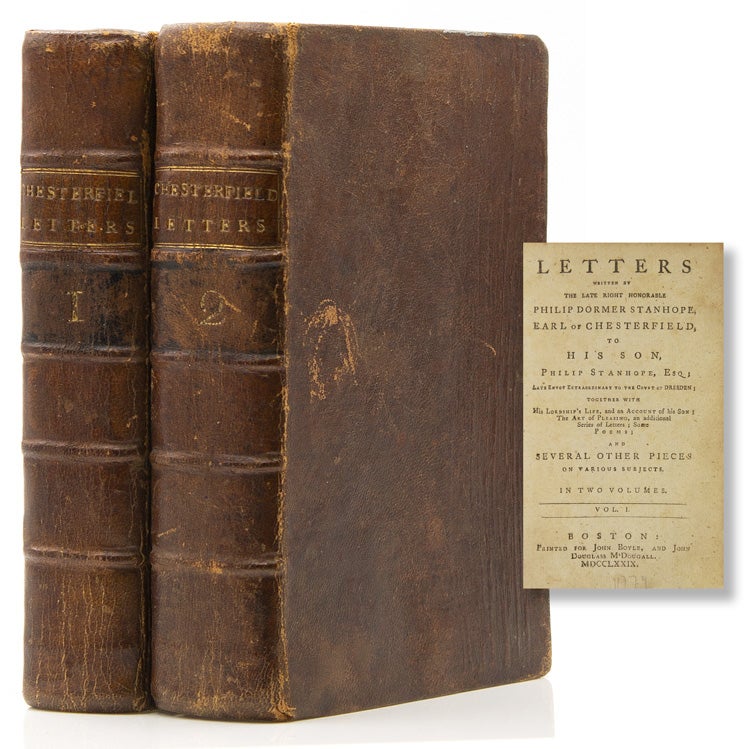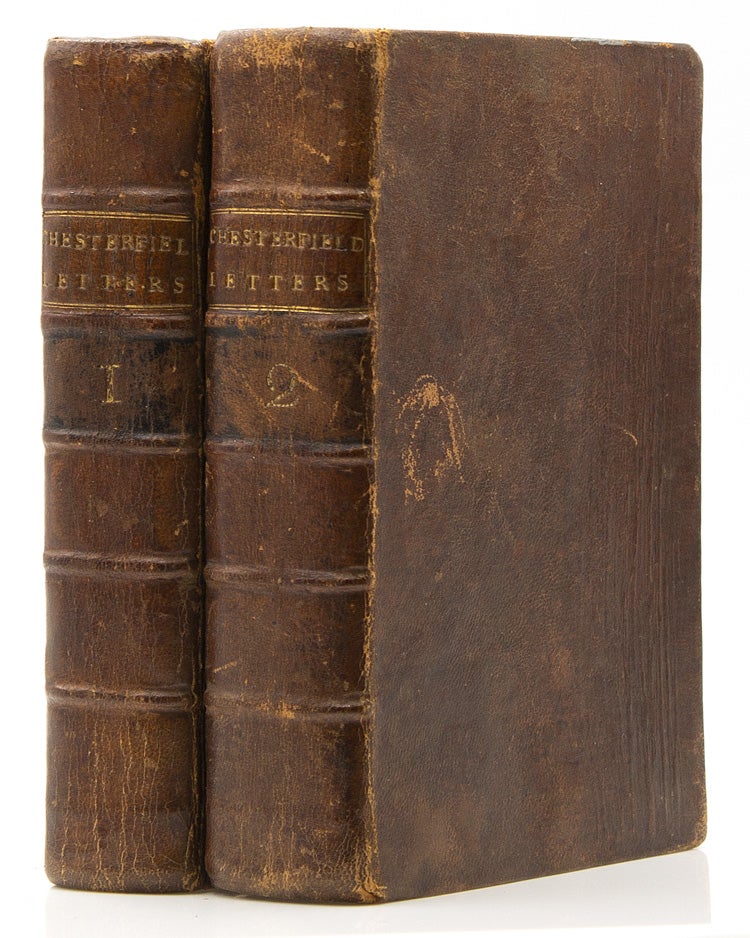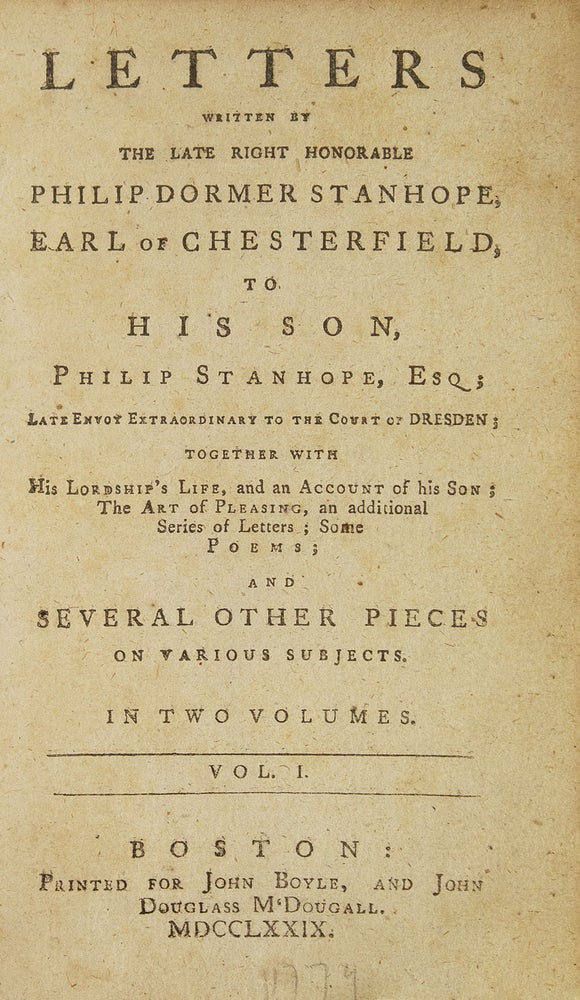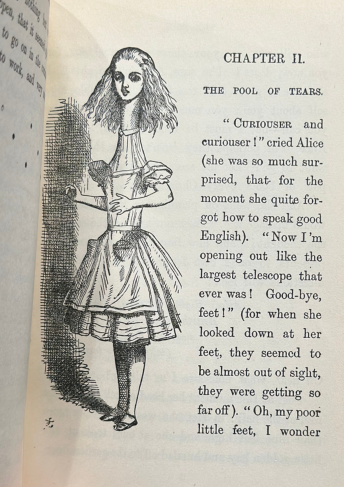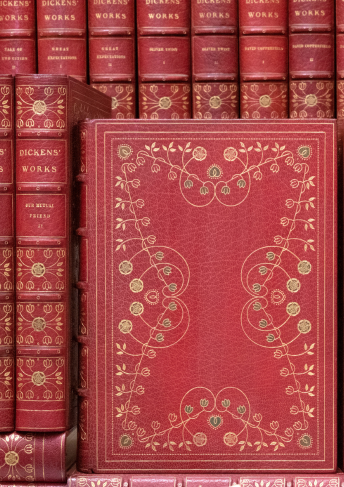Encouraged “immoral, pernicious and Libertine principles”
Letters written by the Late Right Honorable Philip Dormer Stanhope, Earl of Chesterfield, to his son, Philip Stanhope, Esq…Together with His Lordship's Life and an Account of his Son; The Art of Pleasing; an additional Series of Letters; Some Poems and Several Other Pieces on Various Subjects.
Boston; Newburyport: Printed for John Boyle and John Douglass M'Dougall; Printed by John Mycall for John Boyle and J. D. M'Dougall of Boston, 1779.
Price: $850.00
About the item
Second American edition. 7, [3], xxiii, [1], 460; 620 pp. 2 vols. 8vo. Encouraged “immoral, pernicious and Libertine principles”. Contemporary American cal, brown leather title label and black leather Volume numbers. Signed Olive Bliss, 1809, also a previous owner Jon. Hale Jr N.82 crossed out. Small circular ex libris Esther I. Schwartz, Paterson NJ. ESTC W30636; S & M 16534, 16535.
Item #318138
First published in London in 1774 where it immediately attained popularity going into five editions within a year. It appeared in America in 1775, published in four volumes by Rivington and Gaine in New York and was also a success here even though its appearance both in London and New York drew criticism. Abigail Adams is noted as having said that Chesterfield's “Letters” encouraged “immoral, pernicious and Libertine principals in the mind of a youth.” The letters had been written to Chesterfield's natural son and their worldliness and comments on sexual relations and women as well as some question regarding his relations with Samuel Johnson and other factors attracted disapproval.The Irish presbyterian minister, William Crawford's work “Remarks on the late Earl of Chesterfield's Letters to his Son,” 1776 and that of the English author and vicar, Thomas Hunter “Reflections, Critical and Moral on the Letters of the Late Earl of Chesterfield,” 1776 were among the most noteworthy. Many of the later editions were abridged due to the bulk of the work as well as the questionable nature of some of its contents and several selections from the letters were published. In the eighteenth century there were only two editions of the full work published in America, the 1775 Rivington and Gaine edition and this 1779 second American edition. Also published in America in the eignteenth century were selections from the “Letters” published as “Lord Chesterfield's Advice to his Son,” “Principles of Politeness,” and “Select Letters.” In 1827, an edition of Chesterfield, expunged, expurgated and revised was published for the American market and morality, it was entitled “The American Chesterfield”.

